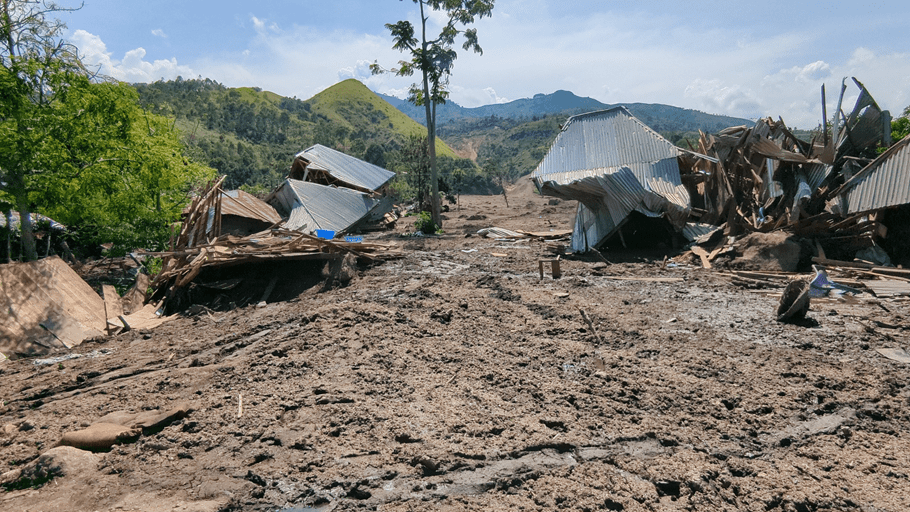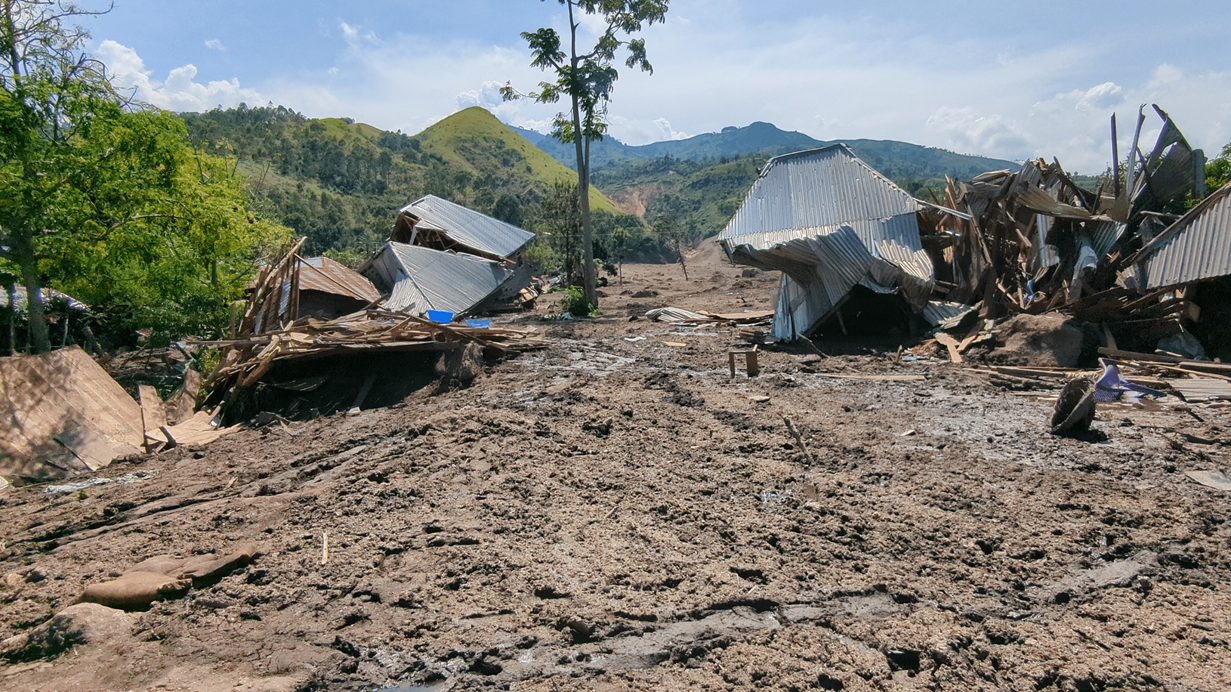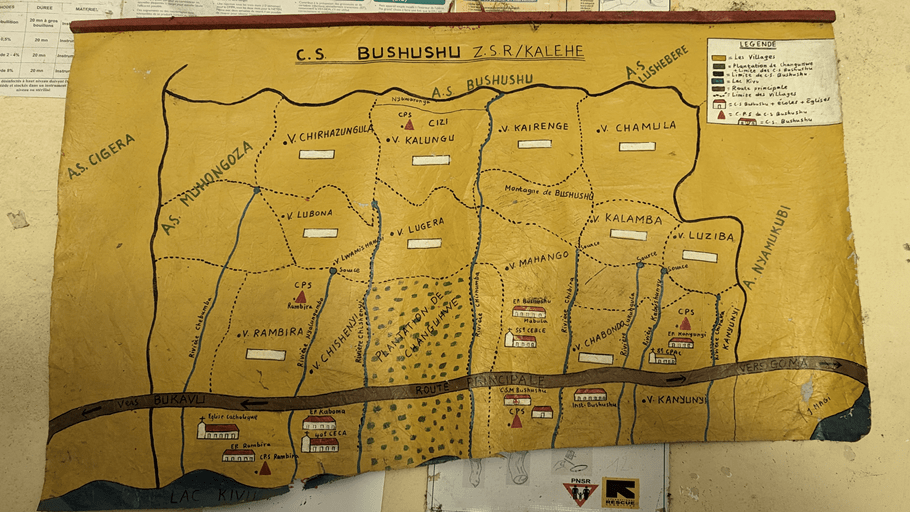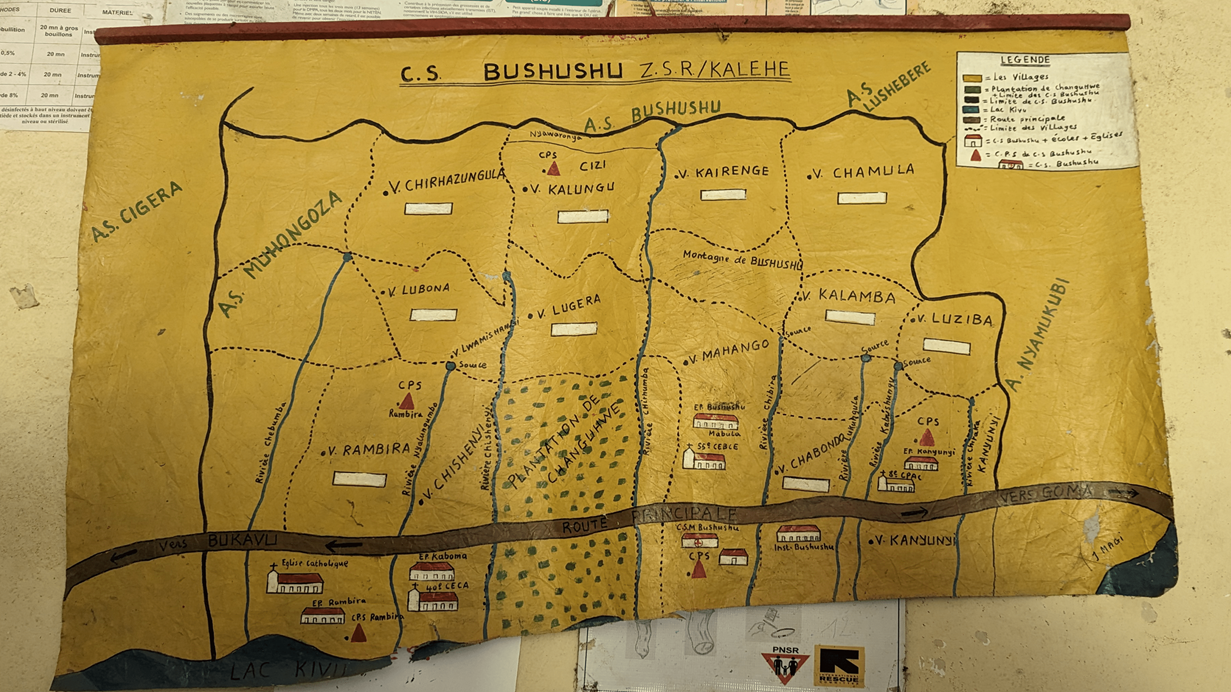On a Thursday evening at the beginning of May, Nsimire Kaliri in Democratic Republic of Congo (DRC) lost her home, one of her sons, and her feelings of hope. It was 5.30pm on 4 May when sudden, unexpectedly heavy rain came. It caused the river nearby Nsimire’s house to burst its banks and resulted in flooding and landslides that reduced much of the once-vibrant village of Bushushu, Kalehe, to rubble and debris. Across the region, more than 400 people were killed and tens of thousands have been left homeless by the disaster.
The context of climate crisis
This and similar situations (also in May) in neighbouring Rwanda, as well as in Myanmar and Bangladesh, have been linked to the effects of climate change leading to increasingly extreme weather events.
A report released by the World Meteorological Organization (WMO) on 22 May stated that ‘weather, climate and water-related events caused 11,778 reported disasters between 1970 and 2021, with just over 2 million deaths and US$ 4.3 trillion in economic losses.’
It further showed that the number of disasters had increased significantly over that period and that the cost of these – both financial and in loss of lives – disproportionately affected people living in countries that were already struggling with high levels of poverty.
WMO Secretary-General, Professor Petteri Taalas, is quoted as saying: ‘The most vulnerable communities unfortunately bear the brunt of weather, climate and water-related hazards.’
Nsimire is one of those paying the price of climate change. This is her story.
Nsimire’s story
‘We used to have a big farm in Buguli, [near Bushushu],’ says Nsimire, ‘but we lost it when a large quantity of water and rocks came from the mountain and devastated the area. It washed everything into the lake.’
Nsimire and her family came from Panzi in the east of DRC originally. After the violent conflict that has been plaguing much of that region reached their area, they moved to Kalehe to find work. She explains, ‘I was living there, on our farm, some years ago when the armed groups came to that place. They took my cows. They took my goats. And we had to move. When we came here, my children and I bought some land. We built good houses and we were living happily. We lived peacefully, without any problem.’
But then, this further, unexpected tragedy came.
Darker and darker
‘It felt like it was getting darker and darker,’ says Nsimire. ‘It started raining heavily. My son came running to me, telling me to get all of the children out of the house. He grabbed me and pulled me out of the compound. He had to break the gate for us to get out and I found myself in the middle of a road which was full of water!
‘A few metres along, a big house fell next to us. It almost injured my leg – it was that close. My son picked me up and carried me to safety on the other side.’
Where are the children?
Nsimire remembers the panic of escaping the flooding. She says, ‘I asked my son, “Are all the children safe?” He said, “Yes, they are all safe.”
‘“What about your brother? Willy. Where’s Willy?” He said he had no information about Willy. All he knew was that he had warned Willy – that he had told him to close his shop and run. No further news.
‘I was so shaken – I was trembling so much and I had a terrible headache.
‘When he told me that he couldn’t find his brother, I felt broken and very weak.
‘At 11am, I told my children, “We still haven’t seen Willy. All the other young people are around. It is possible that your brother may be dead.”’
















